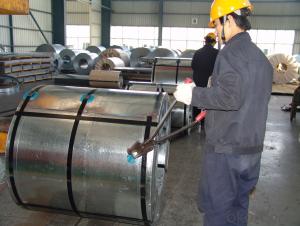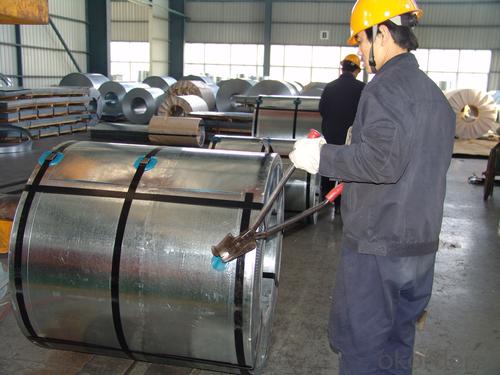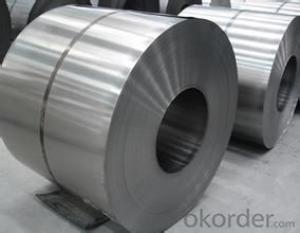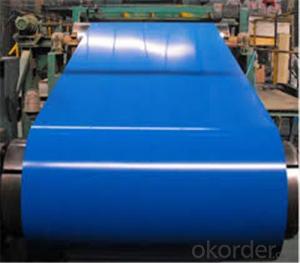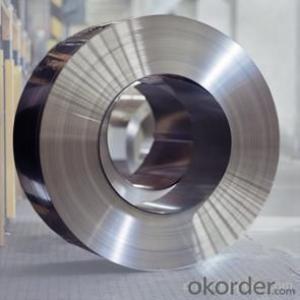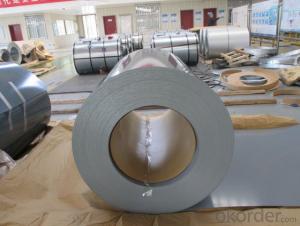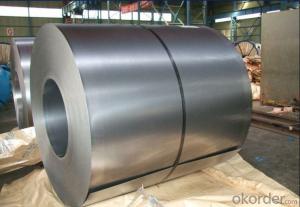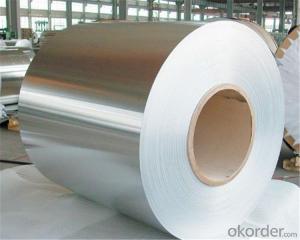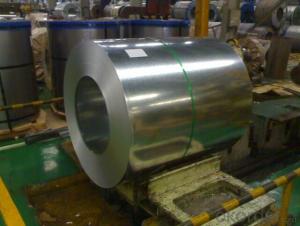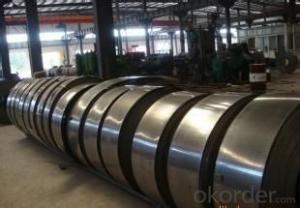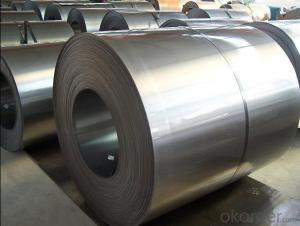Hot Dipped Galvanized Steel Coil/Sheet-JIS G 3302 SGCC
- Loading Port:
- Tianjin
- Payment Terms:
- TT OR LC
- Min Order Qty:
- -
- Supply Capability:
- 15000 m.t./month
OKorder Service Pledge
OKorder Financial Service
You Might Also Like
Hot-dipgalvanized steel coils are produced by immersing steel in a zinc bath.
An appropriate galvanizing process requires a pretreatment process during which the steel passes through different baths which prepare the surface forzinc coating. In this stage, chemicals are used to clean the surface of the steel.
After the chemical treatment, the steel coils pass through a bath of melted zinc at temperatures around 460 ° C. The resulting uniform coating is finished through a process of skin-passing to provide smooth and shiny appearance of the finished product.
To store for a longer period, the hot-dip galvanized coils can be delivered with a final oil coating, according to the customer’s demand.
PROFILAND STEEL produces hot-dip galvanized steel coils with very good workability at further cold forming and bending processes.
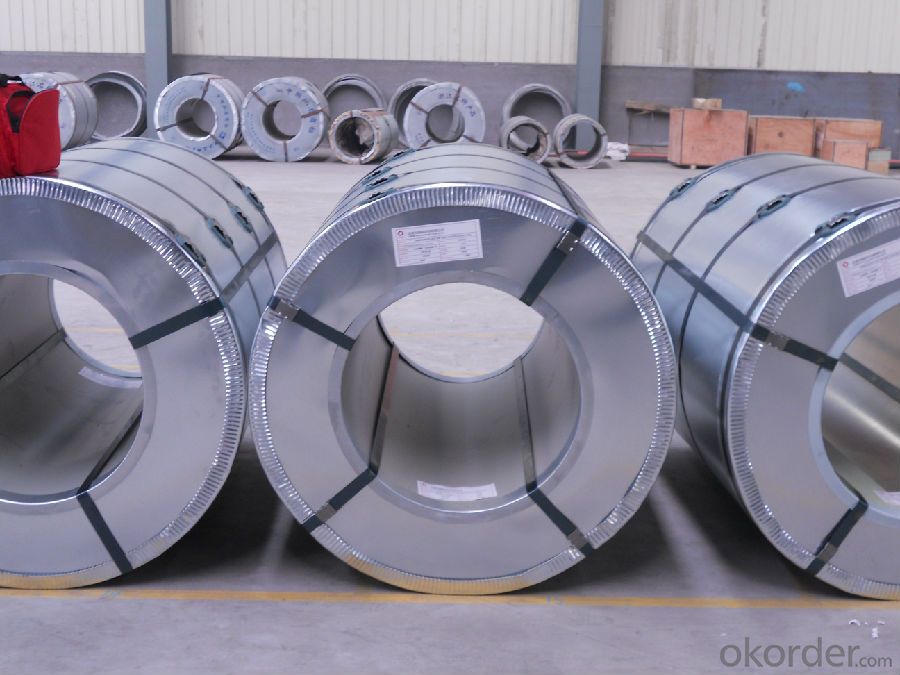
Gi Steel Coil / Sheet
Size: 0.14-0.6mm*750-1250mm
Zinc Coating: 60-150g/m2
Surface Processing: regular spangle; minimized spangle
Chemical Processing: chromated, passivated, unoiled, hot dip galvanized
Coil ID: 508/610mm
Packing: the standard export package
Application: PPGI coil;construction,hardware, home appliances,interior decoration etc.
- Q: How are steel coils secured during transportation?
- Steel coils are typically secured during transportation using steel strapping, banding, or wire rope. These materials are tightly wrapped around the coils and fastened to prevent any movement or shifting during transit. Additionally, wooden or steel blocking may be used to further secure the coils and prevent them from rolling.
- Q: In the game RuneScape, the concept of the fictitious metal, Rune has intrigued me. On an equal area AND weight basis (with a possible 10 lb exception) what metal is 256% stronger than steel?
- Alumuniom so that, it is used in Rockets and planes another feature for Alumuniom, that it can bear a huge amount of heat.
- Q: What are the challenges in coil leveling for coated steel?
- Coil leveling for coated steel presents several challenges that need to be addressed in order to achieve high-quality, flat, and smooth coils. Firstly, one of the main challenges is the potential for coating damage during the leveling process. Coated steel coils are typically coated with materials such as zinc or paint, which can be easily scratched or marred if not handled properly. The leveling process involves passing the coil through a set of leveling rolls, which can potentially cause friction, abrasion, or other mechanical damage to the coating. Therefore, it is crucial to carefully control the speed, pressure, and alignment of the leveling rolls to minimize coating damage. Secondly, the thickness variation across the coil presents a significant challenge. Coated steel coils often have thickness variations due to inherent material properties or production processes. These variations can result in uneven leveling and can lead to coils with waviness or uneven flatness. Achieving uniform leveling across the entire coil surface is essential to ensure consistent quality and appearance of the final product. Another challenge in coil leveling for coated steel is the possibility of coil shape distortion. Coating processes can introduce stresses into the steel, which can cause the coil to warp or distort during the leveling process. This distortion can result in coils with uneven edges or inconsistent flatness. Proper control of the leveling process parameters, such as the number of leveling passes and the tension applied to the coil, is necessary to minimize shape distortion. Additionally, the coil leveling process can generate internal stresses in the steel itself, particularly in coated steels that have been cold-rolled or heat-treated. These internal stresses can cause coil spring-back, where the coil tries to return to its original shape after leveling. Spring-back can result in coils with unwanted curvature or uneven flatness. Effective strategies, such as stress relief annealing or using counteracting leveling techniques, are essential to minimize spring-back and achieve the desired flatness. Finally, the handling and storage of coated steel coils present challenges in maintaining the quality of the leveled coils. Coated steel coils are sensitive to environmental conditions such as humidity, temperature, and exposure to corrosive agents. Proper storage and handling practices are crucial to prevent coating damage, rust, or other forms of deterioration that can occur during transportation or storage. In summary, the challenges in coil leveling for coated steel include minimizing coating damage, addressing thickness variation, controlling shape distortion and spring-back, and ensuring proper handling and storage. Overcoming these challenges requires precise control of process parameters, the use of appropriate leveling techniques, and adherence to strict quality control measures throughout the entire process.
- Q: What are the challenges faced during steel coil processing?
- Some of the challenges faced during steel coil processing include ensuring proper alignment and feeding of the coils into the machinery, handling the heavy weight and size of the coils, managing the high temperatures involved in processing, preventing surface defects or damage to the steel, maintaining consistent quality throughout the process, and minimizing material waste and scrap.
- Q: is cold roll or hot roll mill roller is cast steel? or cast iron?
- Casting is a process of forming a part just like forging or rolling are also processes of forming steel. Cast steel can be any grade of steel poured into a sand mold to form a part like a water pump housing in your car. To be classified as steel, the mixture usually contains less than 2% carbon. Cast iron is a mixture that generally contains more than 2% carbon. It also can be poured into a sand mold. There are many grades of iron. Many metals can be cast into shapes like the air intake plenum on your car is probably cast aluminum. Bronze statues are made by pouring molten bronze into a mold. The process used to create a part has an effect of that part's mechanical properties. A casting is weaker than a forging but certain parts cannot be formed by forging. The large diameter rolls used in steel mills to roll steel into thinner plates or sheets is a hot rolled steel that has probably been forged into shape then machined into the final diameter. Some rolls are fabricated from hot rolled steel plates into shape. This allows the ability to add internal cooling paths to keep the roll from overheating.
- Q: How do steel coils contribute to the automotive aftermarket?
- Steel coils contribute to the automotive aftermarket by serving as a crucial raw material for manufacturing various components used in vehicles. These coils are responsible for providing strength, durability, and structural integrity to parts like body panels, chassis components, suspension systems, and exhaust systems. Additionally, steel coils are also used in the production of aftermarket accessories such as bumpers, grilles, and custom body kits. Their availability and versatility make steel coils an essential resource for the automotive industry, enabling the production of high-quality aftermarket products that enhance the performance and aesthetics of vehicles.
- Q: I beat fallout 3 and i downloaded broken steel expansion. I have no idea how to get to broken steel in other words i do not know how to start playing it.
- Broken Steel Fallout 3
- Q: What are the main raw materials used in making steel coils?
- The main raw materials used in making steel coils are iron ore, coal, and limestone.
- Q: What are the common coil processing equipment used in the industry?
- Some common coil processing equipment used in the industry include coil slitters, coil flatteners, coil feeders, and coil recoilers. These machines are essential for processing metal coils into various shapes and sizes, allowing for efficient production and manufacturing processes.
- Q: I am about to do a welding project and we are instructed to only use mild steel. I want to use found objects like coins, spoons, bottle caps, screws, and other small fasteners. Are these mild steel? What other objects can I use that are mild steel?
- Mild steel is what your friends get when they see your mom's cleavage.
Send your message to us
Hot Dipped Galvanized Steel Coil/Sheet-JIS G 3302 SGCC
- Loading Port:
- Tianjin
- Payment Terms:
- TT OR LC
- Min Order Qty:
- -
- Supply Capability:
- 15000 m.t./month
OKorder Service Pledge
OKorder Financial Service
Similar products
Hot products
Hot Searches
Related keywords
